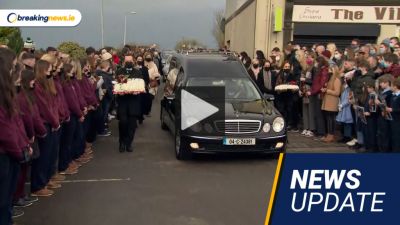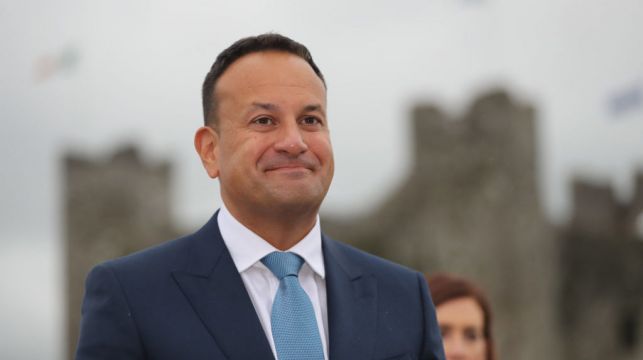A further 11,683 cases of Covid-19 have been confirmed as Tanaiste Leo Varadkar is seeking a deadline of March 31 to remove “almost all” of the remaining Covid-19 restrictions.
According to the Department of Health, there were a further 5,767 PCR-confirmed cases of Covid-19, while 5,916 people registered a positive antigen test through the new HSE portal on Monday.
As of 8am on Tuesday, there were 979 patients with Covid-19 in hospital, of which 93 were in ICU.
The @hpscireland has today been notified of 5,767* confirmed cases of #COVID19.
In addition, on Monday 17 January, 5,916** people registered a positive antigen test through the HSE portal.— Department of Health (@roinnslainte) January 18, 2022
On Tuesday, Mr Varadkar told a meeting of the Fine Gael parliamentary party that the low level of hospital admissions, ICU admissions and deaths has given “a strong degree of confidence that we can ease restrictions quickly over the next few weeks”.
He caveated his remarks to TDs and Senators by saying “we cannot promise anything yet”, party sources said.
The legal basis for the restrictions is set to expire at the end of March, but Government has the option to extend them for another three months, until the end of June.
Measures such as Covid-19 passes for international travel, mask wearing in crowded spaces and self-isolation for symptomatic people may have to remain, Mr Varadkar said.
But curbs on hospitality and working from home could be lifted in the near future.
Sources said the Tánaiste referenced the fact that the Omicron variant is “less severe and that a high level of immunity has built up due to vaccination and infection”, leading to lower hospital numbers and deaths.
He also noted “how difficult our restrictions on social life have become for young adults and single people in particular”.
New variants
Mr Varadkar also warned that the country must be prepared for the potential emergence of new variants of concern later in the year.
That could require another round of vaccination, he told party members.
The country will also need to be able to ramp up its testing, tracing and isolation programmes if necessary, continue to increase hospital and ICU capacity and invest in better air quality in buildings, he said.
Mr Varadkar also praised the Government’s handling of the pandemic.
He said this was evident from case fatality ratios, the number of deaths per million in population, the number of people in hospital per million, the percentage of people vaccinated and the impact on Ireland’s economy and public finances.
He told party members that Ireland has performed very well “by European and world standards by almost every measure”.
The Cabinet may consider the easing of Covid-19 further restrictions as early as Friday, according to The Irish Times.
While no meeting has been formally scheduled yet, it is understood that arrangements will be put in place quickly if advice from the National Public Health Emergency Team (Nphet) on Thursday is favourable to a quick reopening.
The easing of restrictions is likely to occur on a phased basis with hospitality opening hours extended from next week, with the possibility of cultural and sporting events being expanded from February.
The restrictions were initially scheduled to be lifted from the beginning of next month, but there is growing momentum in Government to bring this forward if the Covid situation continues to improve.
Emergency powers
Speaking to RTÉ’s News at One programme, Minister for Health Stephen Donnelly said it is his hope that emergency powers relating to Covid-19 will not be renewed.
“My view is we introduced emergency powers to deal with this, we introduced very difficult measures to deal with this, and they were necessary and are necessary where the public health rationale to keep people safe is there,” Mr Donnelly said.

“What I want to see and what we all want to see is the quickest possible return to normal life and the lifting of all the restrictions where possible, but critically in a safe and balanced way so we don’t squander the very hard fought gains the country now has.”
Mr Donnelly said any decisions would be based on public health advice, but said he believed restrictions could be relaxed before the end of the month.
“What people need is certainty and that’s what we’ll have in the coming days,” and that it was a question of what was the “best and safest way” to do so.
“At the same time, what we’re doing is the medium term work to make sure we have the national defences in place to make sure that if another variant of concern arrives we can respond quickly.”







